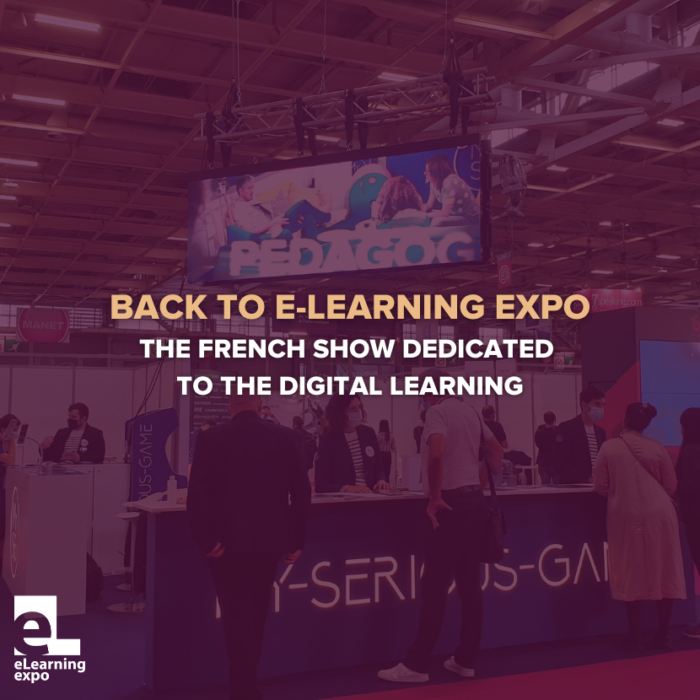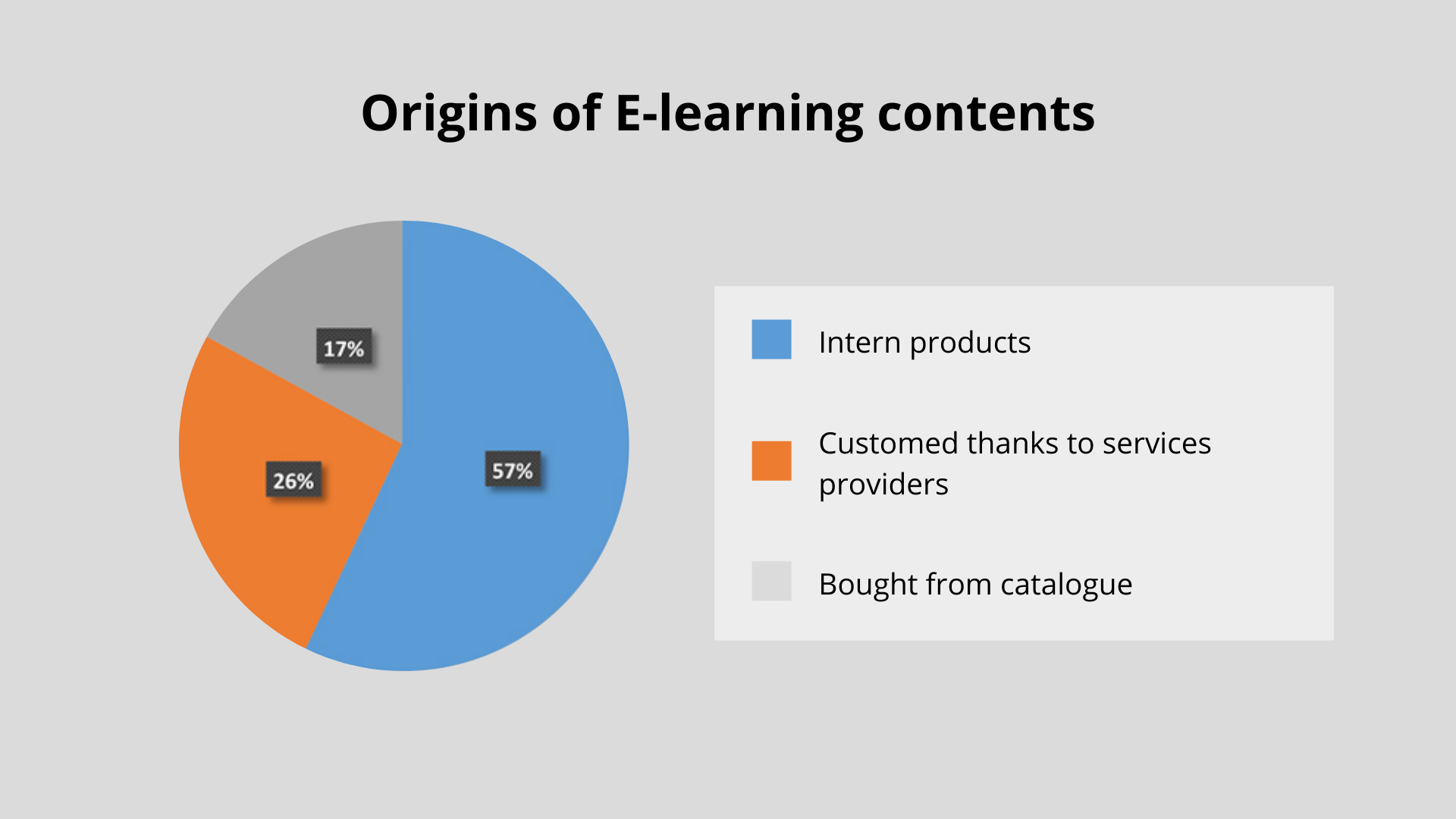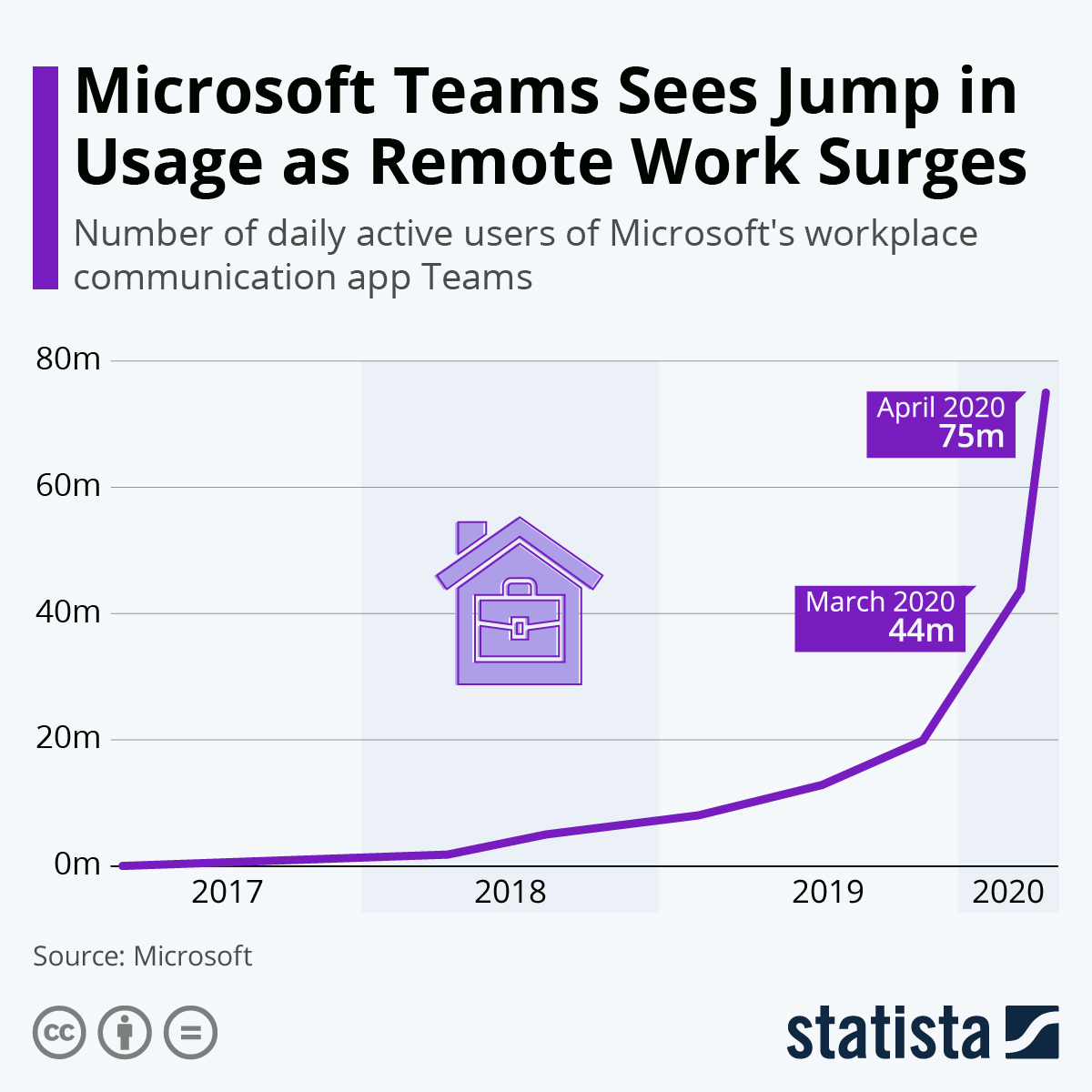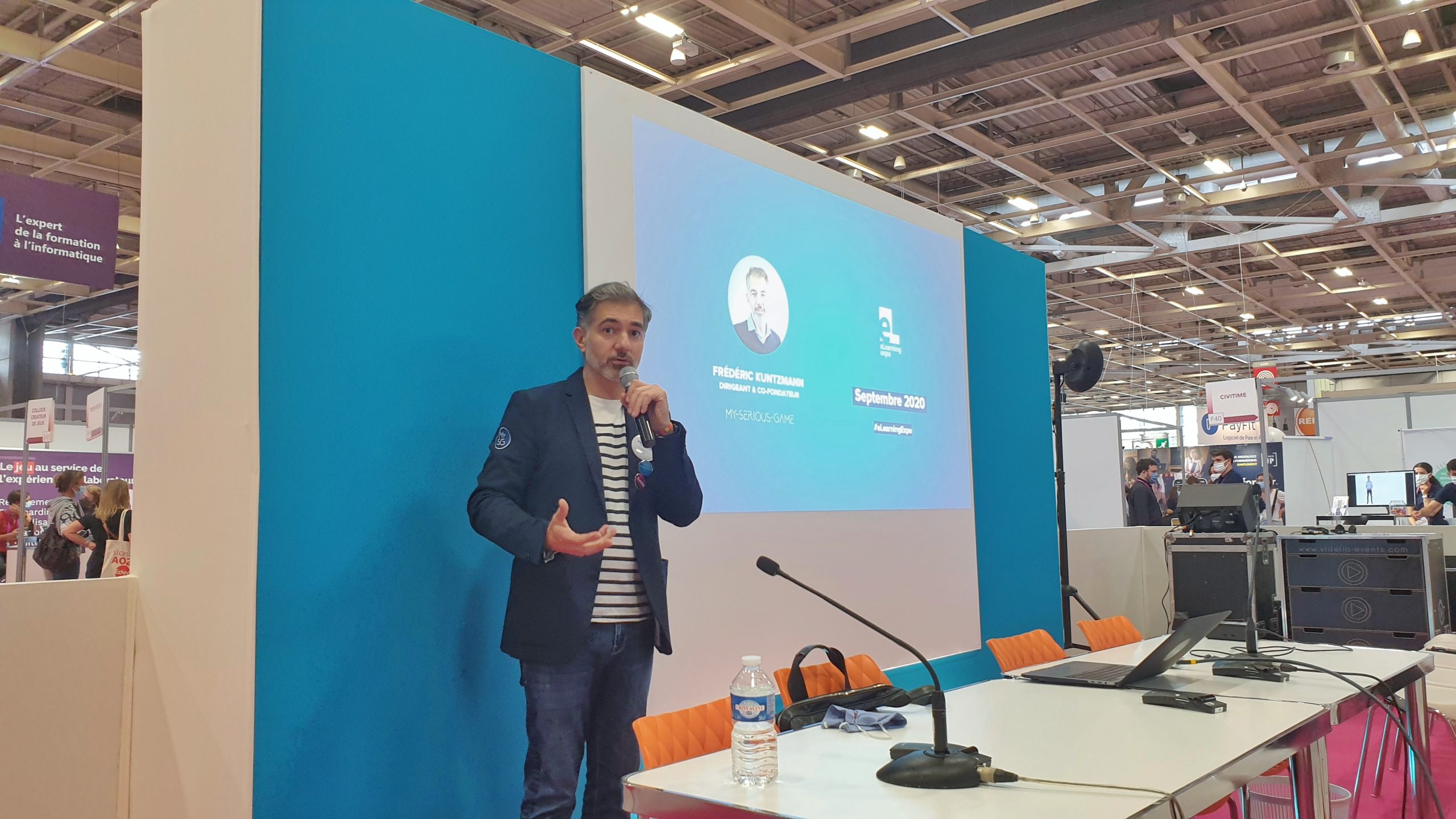
After a postponement of the dates due to the unprecedented situation, the eLearning Expo event opened its doors on 22, 23 and 24 September at Paris Expo.
A key event for digital training and learning.
Usually scheduled for March, the unprecedented situation in recent months has disrupted the plans of the training departments, specifically the human resources. It is why we were attended with great pleasure at this 20th edition of this notable even.
Every year, HR Solutions, E-Learning Expo and Digital Workplace bring together professional training experts including managers and freelancers desiring to digitize their training contents and programs. For this new edition of E-Learning Expo, we were working with our colleagues from My-Serious-Game counselling those who were ready to challenge their digital training approaches.
With a mixture of presentations and talks, our agenda was ready to exchange about training programs and digital learning challenges.
Industrialise your training courses by combining quality and effortlessly.
Looking for a tool to design training modules and programs is one of the priorities and a common subject of our exchanges. Certainly, the Covid-19 situation has only increased this trend on the designing of training programs. This adjustment from face-to-face to digital engage several changes for those interested in a conduction of the digital transformation of their trainings modules and programs. Whatever the reason or enthusiasm, this issue was indeed at the middle of all consultations.
In 2014, the ISTF (Institut Supérieur des Technologies de la Formation – France) reported that “57% of French companies that have already integrated the digital training modality perform it internally using specialized authoring tools“.

The survey additionally points out that “an organisation equipped with a digital learning solution is on average 2 to 3 times more responsive than an organisation relying on external providers“. This factor is certainly a real plus for companies deciding to move towards in owned and internal digitalization.
Industrializing training courses represents several advantages such as reactivity and the reduction of costs linked to training. Besides, it allows companies to improve their staff by directly involving managers and business departments in the development of their team’s skills.
For everyone, this is a high target to achieve. Furthermore, larges companies are starting to enroll Digital Learning Managers as veritable handlers on the deployment of their digital training offer.
However, the quality of learning should not be overlooked.
“Industrializing” should not be perceived as a massive production of training. This misunderstanding could lead to a huge mistake seeing as costly in terms of time for HR when it comes to assess the initiatives of training.
This logic of industrialisation could come with a faultless training structuring and a design logic strategy, coupled with a continuous improvement approach, facilitating the re-engineering task of design managers.
Our colleagues from My-Serious-Game explore this topic on October the 6th during the interview with Frédéric Kuntzmann, their CEO.
Evaluating your learners to measure the performance of your training module.
The question about the relation between trainer and learners comes up quite often. Additionally, “How could you be sure of the quality of your training without indicators and feedback from your learners? » As distance working becomes more widespread, the relation between trainer and learners must be strengthened, not weakened. Evaluation is a virtuous circle that leads to the continuous improvement of the training module. It is an actual assurance of the quality of the training that reinforces the link between trainers and learners.
Moreover, this evaluation step performed after the training should be conceived deeply in advance.
What if your training universe fits into your working environment?
With the emergence of the Digital Workplace and the entirely digitalized working environment, most of the companies are increasingly adopting collaborative platforms to guarantee and simplify internal and remotely communication and project management between teams.
With the emergence of home-office, we have become acquainted with new tools.
What about Zoom, Google Meet, Slack, Microsoft Teams, etc. Do these brands tell you something? (we hope you are not having chills). This last one (M-Teams) broke its record at the beginning of the covid-19 crisis in France. “44 million users active daily on Microsoft Teams in March 2020. This compares with 20 million active users in 2019. ” (Statista)

Based on the fact that these platforms are nowadays required, it is as well the demand for training. Within the emergence of new challenges in terms of content design, the requirement for support is equally essential. Digital training could be possible using digital devices. Combining your communication tools with your training platform is now possible. As a result, we have integrated EdMill into Microsoft Teams. That’s right!
What could this change concretely do for you and your training program, HR and business expert teams? Your working environment encounters your training universe. In other words, it is a simplified communication between learners and content designers.
Going farther with My-Serious-Game
With more than six years of learning design experience and 250 business partners, My-Serious-Game would improve the advancing of digital training.

Presenting My-Serious-Game:
- A know-how based on the creation of tailor-made digital training modules
- The first design engineering model certified by AFNOR (France).
- Numerous awards for premium services.
- A range of products: EdMill (that’s us!), IFSImulation (simulator for nursing training)
According to your training concerns and your digital challenges, it is up to you to choose:
- EdMill: It would guide you through the design of your training courses, helped by a growing movement: “all learners, all creators”.
- My-Serious-Game: It would complement and guide your program surrounded by experts in training and instructional engineering that suits you and brings your learners and learning targets together.
2 possibilities, 2 paths, and a shared digital engineering expertise certified by AFNOR.





